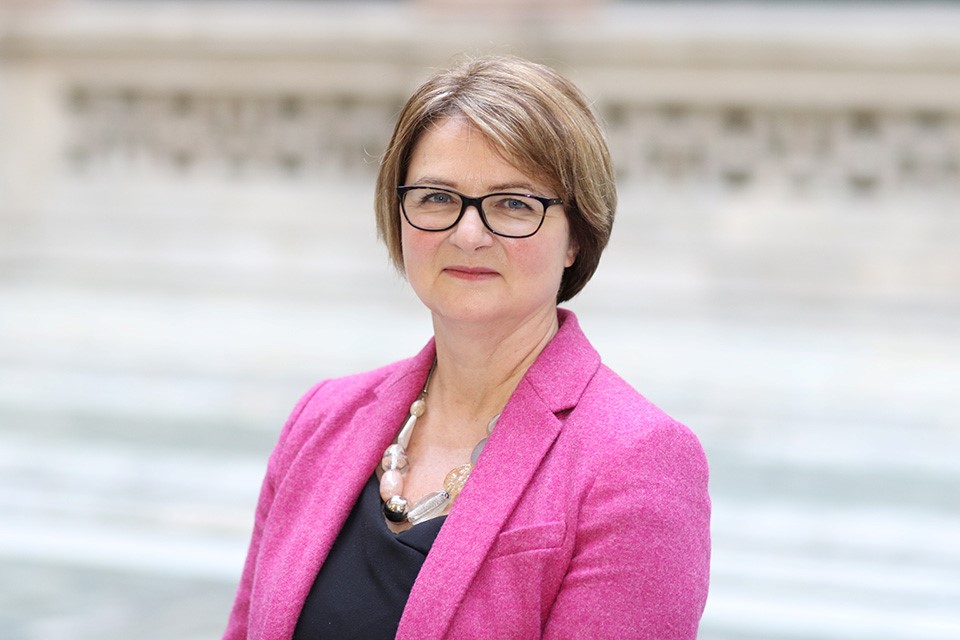INTERVIEW: Her Excellency Cathy Leach, Ambassador to Kazakhstan
Ms Kathy Leach started her role as Her Majesty’s Ambassador to the Republic of Kazakhstan in August 2021. Previously she was Deputy Director, Constitution and Devolution, Europe Directorate in the FCDO. From 2012 to 2015 Kathy served as Ambassador to the Republic of Armenia. Kathy is married and has 3 children. She speaks Russian and French, has learnt Japanese and Armenian, and is currently learning Kazakh. OCA Magazine finds out more…

OCA: Please tell us a bit about your background and how you came to be Ambassador to Kazakhstan.
Cathy Leach: I became fascinated by the history of Russia and the Soviet Union while I was at school, with a brilliant history teacher called Mr Sherman. I applied to Cambridge University to study Russian and French. A month after going to Cambridge in the autumn of 1989, the Berlin Wall came down – it felt like a whole range of new, exciting possibilities were opening up. For my third year I wanted to spend the whole year really improving my language. I arrived in the Soviet Union in September 1991, a month after the attempted coup, to study and live with a Russian family – a few months later, the Soviet Union no longer existed, and I saw the beginning of the extraordinary, unexpected journey to create 15 independent countries. In 2001 I passed the entrance exams to join the Foreign Office. Since then my career has taken me to Moscow, Tokyo, Yerevan and now Astana – working on lots of different areas from energy and climate change to human rights, from security policy through to trade relations with the EU. This posting as Ambassador in Kazakhstan feels like it draws on all the experience I’ve had – and it has happened at a really important moment, as Kazakhstan seeks to work out a new path, a new political and economic approach, 30 years after independence.
OCA: Prior to this posting you were Ambassador to Armenia, which shares a similar Soviet history. What did you learn there that you can apply in Kazakhstan?
CL: There is of course something familiar about the post-Soviet world – the buildings and the bureaucracy are similar! But I think overall the really important lesson is that actually every country in this region is very different, shaped by its unique history and its unique culture. You just need to find a way to get past the bureaucracy to connect with those people who really want to make a difference. And you need to keep generating ideas and contacts so that when an opportunity arises, you are in a good place to seize it and make the most of it.
OCA: You also spent time in Moscow with the Foreign Office. Given the current political climate how will that affect your work with building UK bridges in Kazakhstan, a close neighbour to Russia?
CL: Of course it helps my understanding and my effectiveness at work to know Russian and to understand the history and politics of the region. For Kazakhstan, it’s important that I understand the many personal, cultural, economic, historical and political ties there are with Russia, and how we can work together to try to avoid harm to Kazakhstan during the incredibly difficult geopolitical challenge created by Russia’s invasion of Ukraine. Kazakhstan’s prosperity, security, independence and sovereignty have always been important to the UK, and this is even more important today.
OCA: What are your priorities for building UK/Kazakh relations and economic ties?
CL: Since British companies were founding stakeholders in Kazakhstan’s flagship international oil and gas projects, for many years this sector was the most important one for our Embassy. But after our COP26 Presidency, our goals have become more ‘green’. My big priority now is – together with partners – to support Kazakhstan’s ‘green transformation’: modernising, diversifying and greening its economy. On the commercial side, this means focusing on clean tech and green energy, critical minerals and climate-adaptive agriculture. It also means focusing on education – promoting better English teaching, and more Higher Education links. Together, these are really important economic components supporting the ‘New Kazakhstan’ President Tokayev has outlined.
OCA: How have you settled into Kazakh life and what are your particular favourite Kazakh pastimes and cultural aspects?
CL: I’m enjoying living in Astana, but I think I need to travel more to really understand Kazakh pastimes and culture! That is my ambition for the coming year. There was a brilliant exhibition at the Fitzwilliam Museum in Cambridge last year, celebrating the amazing finds from the burial mounds of East Kazakhstan – and the National Museum in Astana is my favourite building – so I am really keen to explore Kazakhstan’s extraordinary archaeological history.
OCA: What can the embassy do to help build closer cultural ties to Kazakhstan?
CL: To celebrate Burn’s Night (the birthday of celebrated Scottish poet Robert Burns) this year, we have been running a competition to translate ‘Ode to a Haggis’ into Kazakh. This has stimulated so much interest! So, I think we should definitely do more to share English and Kazakh literature.
OCA: Where have you travelled within the country and where have you found particularly resonates with you?
CL: I love Almaty – such a beautiful, interesting, walkable city. I feel very at ease there. My children and I also had a wonderful few days last summer seeing the lakes and mountains in Almaty region. I found it incredible how the scenery could change from the Arizona-like gorge of Charyn Canyon to the Switzerland-like lush green hills around Kolsai and Kaindy Lakes, just an hour or two apart. Driving up to the high summer pastures was a truly unforgettable experience.
